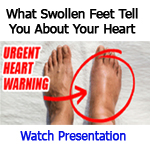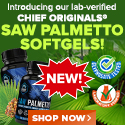
The Top Ten Technologies: Where is Nanotechnology?
 Wednesday, July 14, 2004 Wednesday, July 14, 2004by Mike Adams, the Health Ranger Editor of NaturalNews.com (See all articles...) Tags: top technologies, health news, Natural News |
- Solar storm sparks concern as supervolcano nears eruption: Could sun's electromagnetic pulse trigger cataclysm?
- Mysterious hexagonal UFO sighting over California sparks questions amid government secrecy
- “Cancer-Free with Food”: A culinary revolution in the fight against disease
- Pfizer’s election meddling exposed: Top scientists weaponized science to sway the 2020 vote, so they could benefit from unlawful mandates
- Gum bacteria invade heart, trigger dangerous heart rhythm problems
- The hidden dangers of oversleeping: How too much rest harms cognition, fuels depression, and shortens life
- Trump’s Gulf tour sparks Iran nuclear deal breakthrough amid regional shifts
- The water cure: Unveiling the hidden link between dehydration, obesity, cancer and depression
- Zero-waste bean cooking: Repurposing pinto bean broth in soups or bread
- WHO's PANDEMIC AGREEMENT just a ploy to CONTROL every aspect of any SCAMDEMIC they declare at any time and indefinitely
- RFK Jr. announces simplified federal dietary guidelines promoting whole foods, slams past industry influence
- Unlocking the power of polyphenols: A new frontier in disease prevention and treatment
- Forever chemicals” invade Australian water supply: Investigation yields torrent of carcinogens, signifying vast regulatory failure
- James Comey's posts cryptic ’86 47′ message and gaslights the public after being confronted with passive aggressive death threat to President Trump
- Saw Palmetto: The mighty berry for men's health and beyond
- EXPENSIVE CANCER THERAPY promoted in New Zealand while ignoring the very CAUSE of their shockingly high rate of lymphoma cases
- New Jersey Transit engineers strike halts rail service, stranding 350,000 commuters
- CDC's dangerous gamble: Pregnant women and their unborn babies at put at unreasonable RISK from SIX toxic vaccines
- WAR ON COGNITION: The Coordinated Assault on Your Brain and How to Defend Yourself Against Every Attack
- Canada's COVID cover-up: Health officials swore secrecy to protect Trudeau from vaccine scandal
- Singapore's draconian vaccine mandate: Citizens face jail time for refusing FORCED medical procedures that do HARM
- Big Pharma's Dirty Secret: How Prescription Drugs Are Starving Your Body of Essential Nutrients
- Gene-edited pork sneaks onto your plate: FDA quietly approves CRISPR pigs amid health and ethical concerns
- RED ALERT: Nuclear War Between India and Pakistan Could Trigger Global Catastrophe… full RISK ANALYSIS
- JESUS NEVER SPOKE ENGLISH: Historical facts on why the Bible you’re probably reading has been altered, redacted or hidden from much of its original meaning
- Hidden poison in your medicine and supplements: How phthalates in capsules are silently attacking your heart, thyroid, and hormones
- BBC accused of “political censorship” for shelving Gaza documentary amid mounting pressure
- Brushing with poison: Study finds toxic heavy metals in 90% of toothpaste brands, including those for children
- Australia’s vaccine cover-up: 35 died same day as COVID shot, but authorities ignored them
- Why All Government Officials and Big Tech CEOs Who Engage in Systematic Viewpoint Censorship Must Be ARRESTED, Prosecuted, and Sentenced to Life in Prison
- Silent catastrophe: COVID-19 vaccines linked to plummeting fertility rates, Czech data reveals
- Survival basics: 5 Dangerous locations to avoid during an EMP attack
- X-class solar flare sparks worldwide disruptions, with more storms expected as sunspot turns toward Earth
- The truth about Benzyl Alcohol in beauty products
- DOJ targets controversial “Proximal Origin” study in push for scientific transparency
- Landmark study of 85 million reveals shocking surge in heart attacks, strokes, and sudden death following the notorious COVID-19 jab
- The Miraculous Healing Power of DMSO: Nature's Forgotten Cure for Cancer, Pain, and Regeneration
- Biblical truth: God will carry out a “cosmic reset” of Earth and destroy all human civilization with a series of extinction-level cosmic impacts known as The Seven Trumpets, Seven Bowls and Seven Seals
- URGENT REPORT: The China Import Embargo - What to Stockpile Now Before America Runs Out
- The Ultimate Survival Guide to Baking Soda: A Miraculous, Multi-Purpose Remedy for Health, Home, and Emergency Preparedness
- A call to preserve America’s future: “Defeating Big Government Socialism” by Newt Gingrich
- Stunning Visualization of the Seven Trumpets in the Book of Revelation
- Big Pharma launches “Vaccine Integrity Project” to combat Secretary Kennedy and keep 94 shots going into kids with mandates and liability protections
- World Economic Forum's current downfall exposes legacy of totalitarianism, financial fraud, and crimes against humanity
- Widespread social and economic unrest: Steve Quayle issues urgent financial warning of imminent asset collapse in new interview with Mike Adams
- Aerosolized bioweapons? Strange “diploid biomasses” falling out of the sky in Florida captured under the microscope
- Biden regime deployed over 600 grants to fund disinformation agenda, to silence the truth and stifle debate
- The Miraculous Healing Power of Green Tea: Unlocking the Potent Antioxidants That Big Pharma Doesn't Want You to Know About
- The unspoken truth about chemotherapy: These “treatments” create toxic time bombs in your body called CELL-KILLING PARTICLES
- U.S. Government's Bio-War Against America: 15 Historical Medical Horrors Inflicted on the American People by the Government Itself
- A win for free speech: State Department SHUTS DOWN controversial disinformation office
- French rioting demonstrates how gun control laws are failing law-abiding citizens
- Head of L.A. Port warns of incoming plunge in U.S. supply chain, empty shelves and inventory depletion in 5-7 weeks
- Supreme Court to review challenge to Illinois’ semi-automatic gun ban
- Red Cross issues warning to stop blood plasma donations from vaccinated people
- Scientists confirm: GENIUS brain function can be spontaneously unleashed in humans without any apparent cause
- EPA advisor admits the agency is funneling billions to climate groups ahead of Trump’s return to White House
- HYSSOP: What research reveals about the health benefits of this ancient holy herb
- Two containers with completed ballots fall out of truck in Florida
- Newly released JFK files reveal Pentagon's role in creating Lyme disease and covid in the same lab
- Mike Adams releases country western hit single: Goin’ Back in Time is Comin’ Home
- Global leaders unite to clamp down on “misinformation” with UN-backed Cascais Declaration
- BREAKING: 2025 NDAA authorizes mandatory military draft of WOMEN across America… as Pentagon pursues global NUCLEAR war with both Russia and China at the same time
- I Want My Bailout Money – new song released by Mike Adams
- Michael Yon warns of a ZIONIST TAKEOVER in Trump’s second administration
- Ozempic and Wegovy weight loss drugs are injectable LIZARD VENOM PEPTIDES that may unleash a devastating wave of organ failure… side effects align with symptoms of SNAKE BITES
- BOMBSHELL: DNA testing kits are a SCAM to develop ethnic-specific bioweapons
- The Health Ranger releases “Vaccine Zombie” song and music video, using AI-animated zombies for the music video
- These 13 countries just signed an agreement to engineer a global FAMINE by destroying food supply
- Israeli soldiers accused of even more torture and abuse in the West Bank
- RFK Jr. clears key hurdle: Sen. Susan Collins backs controversial HHS nominee, signaling a new era for health policy
- Sermon 30: How Jesus reveals Caesar’s FAKE CURRENCY and FALSE AUTHORITY
Makers of artificial joints drill tiny holes into the surface of the joint structures and call it nanotechnology. Why? The holes are nano-scale. Makers of pants that resist stains claim to use nanotechnology, too: pant fibers are coated with "nano whiskers" which are, essentially, tiny cloth fibers. Even sunscreen makers claim to be using nanotechnology: tiny particles in the sunscreen lotion claim to make the sunscreen more effective.
By this measure, everything is nanotechnology. I mean that literally: every "thing" is nanotech because it's made of a collection of very tiny molecules. Your computer has a nanotech CPU, your radio has nanotech transistors, your brain is made of nanotech neurons, and the carrots in your refrigerator were built from an impressive nanotechnology infrastructure that fed them nutrients from tiny molecules diffused into the plants' nanotech roots through soil.
The whole universe is, in fact, nanotech. In fact, every item of matter in the known universe is made up of tiny particles and, ultimately, waves of energy and probability. Under this vast umbrella, nearly anything can be called "nanotechnology." And it's not a misnomer: everything really is nanotech!
Since everything is, technically, nanotech, product makers and science researchers can legitimately claim to be using nanotechnology on practically any project. As a result, the term has lost any real meaning. "Nanotech" now belongs on the scrap heap of catchy buzzwords that sound cool but are devoid of any real meaning.
The preferred term for the "classic" definition of nanotechnology is molecular assembly technologies. This phrase remains specific: it means the assembly of objects or machines at the molecular scale. And that's what classic "nanotech" was really all about.
So why haven't I covered molecular assembly technologies in this report? While the field does look potentially promising, it's still a bit early to say what the real-world applications are going to look like. I plan to cover this subject in more detail in a future report, however.
In the mean time, here's one are where I think nanotechnology has gone astray. One of the most frequently mentioned areas of nanotechnology is in medicine, where researchers promise that an army of millions of nanotech robots will travel through the bodies of medical patients and repair cells, destroy tumors, rebuild damaged tissue, and perform other medical miracles. These researchers forget that the body already has its own nanotechnology that does all this and more! It's called the immune system and the best way to improve the quality of life for most people, in terms of health, would be to support their own natural healing abilities. Injecting a swarm of tiny robots into their bloodstream -- which is precisely what is being proposed by medical nanotech pioneers -- is a fundamentally flawed medical strategy that assumes scientists know how to heal people better than the body itself. The true answers to improved health and quality of life are to be found in nutrition, physical exercise, avoidance of disease-causing foods, and a wholesale shift away from pharmaceuticals and Western medicine. Nanotechnology is not a promising solution for health and healing, but it is a great way to rack up funding grants and, someday, charge patients hundreds of thousands of dollars for complex-sounding treatments. But remember, the body already has its own nanotechnology, and it's far superior to anything nanotech scientists can come up with.
Putting it all together
The top 10 technologies presented here offer a potential roadmap for enhancing our collective quality of life through technology. But as I hinted in the beginning, technology is not the answer to life. Without philosophy, the arts, spirituality, experiential wisdom and personal ethics, we are doomed as a civilization, regardless of the technologies we may invent. These technologies only make sense when we are mature enough as a species to wield the powers they offer us.
My intention in authoring this document is the hope that sharing these ideas will stimulate further discussion about technology and its role in our lives. Comments are welcome at feedback48@newstarget.com.
Thank you for reading,
- Mike Adams
Top technologies at FETCH.news
Get independent news alerts on natural cures, food lab tests, cannabis medicine, science, robotics, drones, privacy and more.
 About the author:Mike Adams (aka the "Health Ranger") is a best selling author (#1 best selling science book on Amazon.com) and a globally recognized scientific researcher in clean foods. He serves as the founding editor of NaturalNews.com and the lab science director of an internationally accredited (ISO 17025) analytical laboratory known as CWC Labs. There, he was awarded a Certificate of Excellence for achieving extremely high accuracy in the analysis of toxic elements in unknown water samples using ICP-MS instrumentation. Adams is also highly proficient in running liquid chromatography, ion chromatography and mass spectrometry time-of-flight analytical instrumentation.
About the author:Mike Adams (aka the "Health Ranger") is a best selling author (#1 best selling science book on Amazon.com) and a globally recognized scientific researcher in clean foods. He serves as the founding editor of NaturalNews.com and the lab science director of an internationally accredited (ISO 17025) analytical laboratory known as CWC Labs. There, he was awarded a Certificate of Excellence for achieving extremely high accuracy in the analysis of toxic elements in unknown water samples using ICP-MS instrumentation. Adams is also highly proficient in running liquid chromatography, ion chromatography and mass spectrometry time-of-flight analytical instrumentation.
Adams is a person of color whose ancestors include Africans and Native American Indians. He's also of Native American heritage, which he credits as inspiring his "Health Ranger" passion for protecting life and nature against the destruction caused by chemicals, heavy metals and other forms of pollution.
Adams is the founder and publisher of the open source science journal Natural Science Journal, the author of numerous peer-reviewed science papers published by the journal, and the author of the world's first book that published ICP-MS heavy metals analysis results for foods, dietary supplements, pet food, spices and fast food. The book is entitled Food Forensics and is published by BenBella Books.
In his laboratory research, Adams has made numerous food safety breakthroughs such as revealing rice protein products imported from Asia to be contaminated with toxic heavy metals like lead, cadmium and tungsten. Adams was the first food science researcher to document high levels of tungsten in superfoods. He also discovered over 11 ppm lead in imported mangosteen powder, and led an industry-wide voluntary agreement to limit heavy metals in rice protein products.
In addition to his lab work, Adams is also the (non-paid) executive director of the non-profit Consumer Wellness Center (CWC), an organization that redirects 100% of its donations receipts to grant programs that teach children and women how to grow their own food or vastly improve their nutrition. Through the non-profit CWC, Adams also launched Nutrition Rescue, a program that donates essential vitamins to people in need. Click here to see some of the CWC success stories.
With a background in science and software technology, Adams is the original founder of the email newsletter technology company known as Arial Software. Using his technical experience combined with his love for natural health, Adams developed and deployed the content management system currently driving NaturalNews.com. He also engineered the high-level statistical algorithms that power SCIENCE.naturalnews.com, a massive research resource featuring over 10 million scientific studies.
Adams is well known for his incredibly popular consumer activism video blowing the lid on fake blueberries used throughout the food supply. He has also exposed "strange fibers" found in Chicken McNuggets, fake academic credentials of so-called health "gurus," dangerous "detox" products imported as battery acid and sold for oral consumption, fake acai berry scams, the California raw milk raids, the vaccine research fraud revealed by industry whistleblowers and many other topics.
Adams has also helped defend the rights of home gardeners and protect the medical freedom rights of parents. Adams is widely recognized to have made a remarkable global impact on issues like GMOs, vaccines, nutrition therapies, human consciousness.
In addition to his activism, Adams is an accomplished musician who has released over a dozen popular songs covering a variety of activism topics.
Click here to read a more detailed bio on Mike Adams, the Health Ranger, at HealthRanger.com.
Take Action: Support Natural News by linking to this article from your website
Permalink to this article:
Embed article link: (copy HTML code below):
Reprinting this article:
Non-commercial use OK, cite NaturalNews.com with clickable link.
Follow Natural News on Facebook, Twitter, Google Plus, and Pinterest
Science News & Studies
Medicine News and Information
Food News & Studies
Health News & Studies
Herbs News & Information
Pollution News & Studies
Cancer News & Studies
Climate News & Studies
Survival News & Information
Gear News & Information
News covering technology, stocks, hackers, and more



"Big Tech and mainstream media are constantly trying to silence the independent voices that dare to bring you the truth about toxic food ingredients, dangerous medications and the failed, fraudulent science of the profit-driven medical establishment.
Email is one of the best ways to make sure you stay informed, without the censorship of the tech giants (Google, Apple, Facebook, Twitter, YouTube, etc.). Stay informed and you'll even likely learn information that may help save your own life."
–The Health Ranger, Mike Adams













































